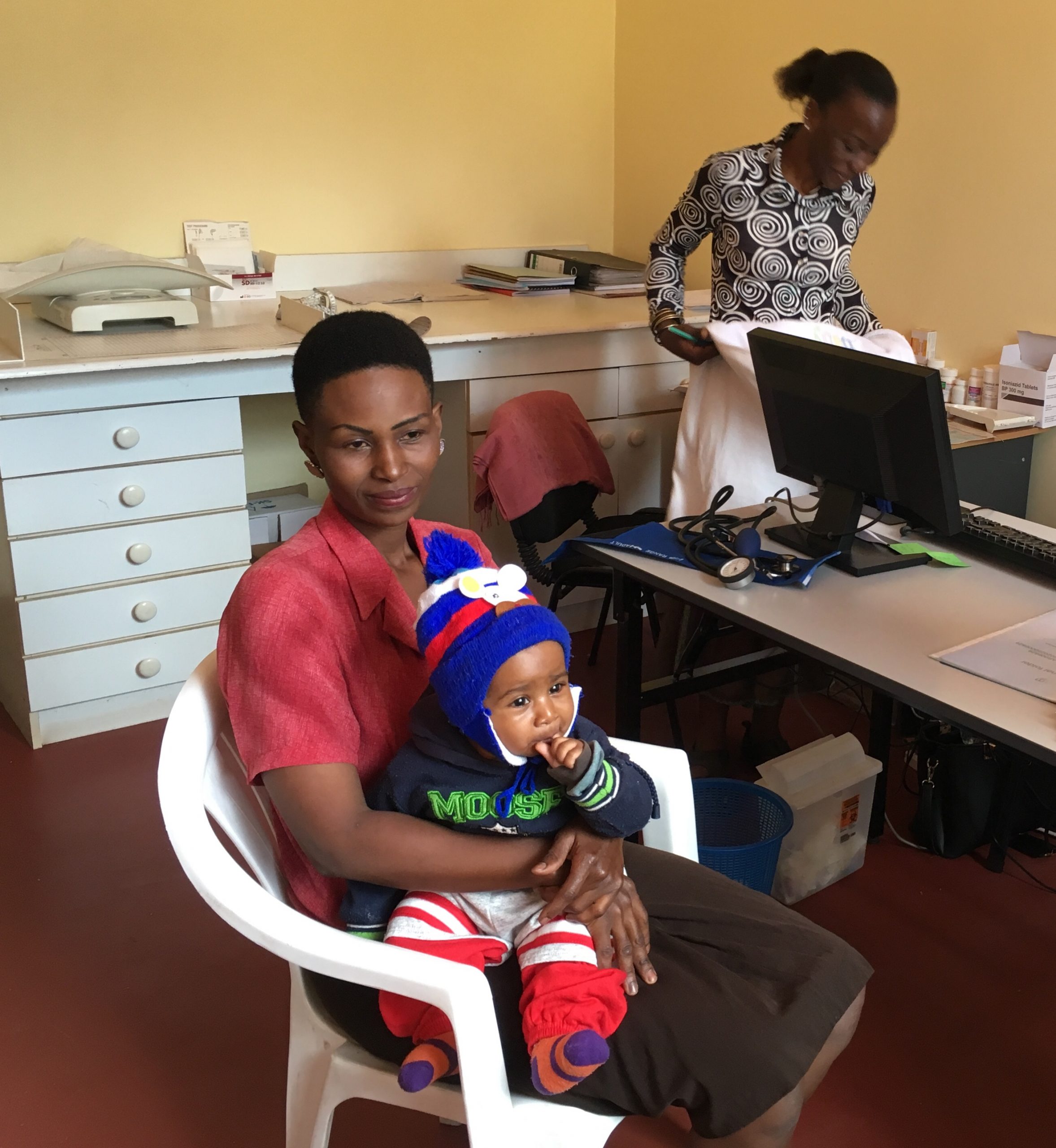Woman to woman. The importance of counselling and the prevention of vertical transmission of HIV
Raising awareness, a very powerful weapon for breaking down taboos, and preventing and treating HIV. This is a job for the women in DREAM.
Medication alone is not enough to fight HIV. Therapy is essential.The only way to weaken the virus is to lower its viral load to such an extent that it cannot be transmitted. That sounds easy. However, taking a cocktail of three drugs at various times during the day or night for your whole life, in a country where this disease is still taboo, is not at all easy. The therapy is the only really effective form of prevention but it has to be carried out scrupulously. The younger HIV patients in particular, find the everyday problems and challenges really difficult. They have to come to terms with the stigma, other people judging them, their fear of being outcast and this all requires constant strength and support. Taking medication their whole life can be tiring and demotivating. They sometimes feel resigned or reckless and give up.
DREAM is very aware of this, which is why the programme is based on not just the medication, first of all there is the person. When the patients take their medication properly and have a good diet, this protects them, it makes it possible for them to lead a healthy life and it also minimises the risk of transmission. There are two main ways in which transmission occurs, through unprotected sexual intercourse and during pregnancy. In Tanzania, as in many other countries in Africa, there are very many HIV+ women, which is why the prevention of mother-to-child transmission (PMTCT) is so important. Every Tuesday and Thursday the Arusha DREAM centre welcomes HIV+ women who are pregnant or have children of up to 18 months. The visits take a long time so there is plenty of time to talk to the patients and find out how they are. Almost all these women (97%) follow their treatment properly and their children are born healthy.
Woman to woman, because that way everyone feels that it is easier to understand and confide in each other. A doctor, a nurse and an activist check the mother’s weight and her blood pressure and the child’s weight, height, temperature and the circumference of the child’s head are also measured, which all provides valuable information. Monitoring pregnant women, making sure they are following their therapy properly and checking their viral load is essential, especially near the time when they give birth, when the risk of transmission is high. Another important topic is breastfeeding because this strengthens the baby’s immune defences but many women do not want to breastfeed because they are afraid of transmitting the virus to their baby. Counselling helps people understand risks and benefits, it helps monitor each case and assess the best way to proceed. When mother take their medication properly, the risk of infecting their baby during a natural delivery and while breastfeeding is very low; the number of cases at the DREAM centre in Arusha are estimated to be 2 out of 50.
Giuliana is a young mother, she is 18 years old and has been in therapy since she was a child. “How are you?”Elika, the activist asks her. “I’m fine, I always take my medication and we moved to my grandmother’s house, she helps me with Weena and I can work”. Giuliana is alone, her daughter’s father does not even know that his daughter was born. This is not unusual, situations like this are very common here. Weena is a very good baby, she smiles all the time and when the doctor finishes examining her, she puts her in my arms so she can talk to her mother. They talk for ages. Now it time to look at the blood tests, the doctor opens the file and there is silence, broken only by me playing with the baby. “You aren’t taking your therapy. Why did you tell me a lie?”. Giuliana lowers her eyes and in a faint voice says she is taking it. “So why is your viral load so high? Come here, I’ll show you”. It is only 18 months and 3 check-ups that a baby born to an HIV+ mother can be declared HIV- and it is during these 18 months that adherence to the therapy makes all the difference. Elika and the doctor explain how important it is, Giuliana bursts into tears but DREAM is there to support her so she can let go and cry for as long as she needs to.
Since she has had Weena she has not been able to afford more than a room that she shares with other girls. “I work wherever I can, in a café, in a hotel, as a cleaner, but with a baby it’s difficult and there’s never enough money. I even find it hard to buy food and that room is all I could afford. The other girls realised that I was on medication and they started asking me questions, then they ignored me. I was ashamed to tell the truth, I was afraid they would tell other people or have me lose my job. I stopped taking my medication”. Giuliana had started to feel sick, she knew she could not go on like this, which is why she moved into her grandmother’s home. After an hour of counselling, Giuliana was no longer crying, she knew that she would never be alone here, she puts the medication in her bag, picks up Weena, kisses her and wraps he tightly onto her back with a kanga, the typical coloured fabric. Giuliana’s story, like so many others, shows the problem of stigma, the need to be listed to and to be given support. People first and then patients, a fundamental value of DREAM that improves both prevention and therapy.
Article by Cecilia Gaudenzi
